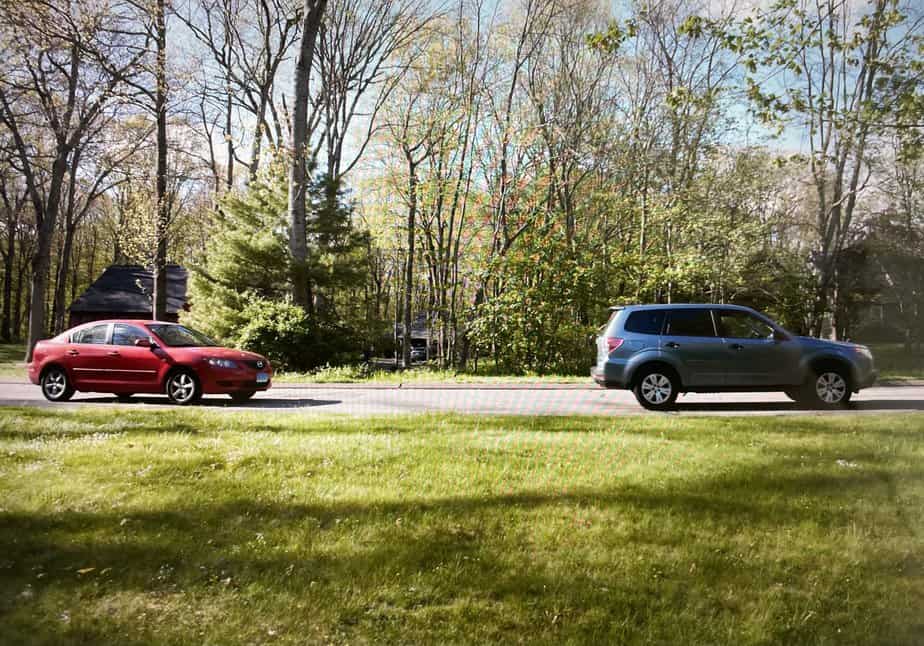It is possible that owning a car is one of the most expensive things you will ever do. However, there are a lot of different methods to cut down on the cost of maintaining a car. When it comes to your personal finances, the more cost-cutting steps you take right now, the more money you will save in the long run. Here are some of the best ways to save money on your car bills from a contributing author.

Buying Your First Car? Here’s How To Save Yourself Some Money
Keep your car.
Not only does the price of new cars go up every year, but vehicles lose their worth very rapidly, and if you trade in your vehicle frequently, you end up losing money due to the poor value of your trade-in. Invest in an automobile of high quality and plan to maintain it for at least five to seven years.
Go small
When buying a new car, you should consider getting a smaller model. They are often more affordable, and they typically have a better mileage per gallon rating because they are lighter. In addition to this, insurance premiums are reduced.
Check fuel efficiency.
When shopping for a new vehicle, it is important to take into account how the various choices will affect the vehicle’s MPG. For instance, running the air conditioner on the highway will cause you to lose several miles per gallon, and it will cost you much more if you drive in stop-and-go traffic. Additionally, automatic transmissions get roughly five miles per gallon less than manual transmissions.
Bypass the additional insurance coverage.
When acquiring a new vehicle, do not make the mistake of getting credit life or credit disability insurance from the auto dealer. If you fold these coverages into your auto loan, not only will you end up paying anywhere from 100 to 500 percent more than you should for the coverage, but you will also end up paying interest on it. Some dealers try to pressure customers into purchasing these products, but they are extremely overpriced. Maintain regular coverage for life and disability insurance, either via your company or a separate policy on your own.
Avoid being persuaded to purchase any extras.
When it comes to acquiring service contracts or extended warranties on new autos from your dealer, you should proceed with the utmost caution. Despite what the salesman may lead you to think, many of them have extremely limited coverage, and the cost of these plans is far more than the cost of buying an extended car warranty from a reputable third party.
Maintain the upkeep of your car and save money.
After you have paid for the vehicle outright, you will need to factor in the monthly payment cost, the charges for auto insurance, and the cost of gasoline. If you take our first piece of advice, which is to get a vehicle of high quality and retain it for a number of years, then it is inevitable that you will also rack up costs associated with vehicle maintenance. However, there are ways to save costs in this area as well:
Get Regular Tune-ups
Make sure that your car is always properly tuned. A car that is severely out of tune might see a four percent improvement in its fuel economy once it is tuned. 3 It is more cost effective to pay the fee for a tune-up.
Regular oil changes
Regardless of how often the owner’s handbook for your vehicle advises you to change the oil and oil filter, you should do it every 3,000 miles instead. Changing the oil in your vehicle’s engine on a more regular basis is the single most essential thing you can do to lengthen the life of your engine, and it will more than pay for itself in savings on maintenance and engine wear.
Make adjustments to the filters.
Perform a regular inspection of the air filter in your vehicle. The engine’s lifespan is shortened and the vehicle’s gas mileage is decreased by up to 10 percent when the filter is unclean. You can either remove the filter and clean it by hand using an air hose, or you can just replace it.
Make sure you have the right tires and maintain them
Use steel-belted radial tires, and properly maintain your vehicle. Increasing the pressure in your tires and aligning your wheels correctly can increase your vehicle’s fuel economy by up to one mile per gallon.
Use the right gas
Do not use a gas with a higher octane rating than what is recommended in your vehicle’s owner’s handbook unless your vehicle is making knocking and pinging sounds. Premium fuel is not beneficial for the vast majority of vehicles. If your vehicle does not have a high-performance engine and the manufacturer does not advise you to use a high-octane gas, you should use the cheaper option.
Maintain the right tire pressure
Always be sure to check the pressure on your tires. It is possible to lose up to 0.2 per cent of your gas mileage for every pound that your tires are under-inflated.
Make sure that your tires are balanced
If you get your tires balanced once a year, you may extend their life by thousands of miles and save money. Incorrectly balanced tires will not only ruin the tread but also prematurely wear out your shock absorbers and cause damage to your suspension system, which will result in additional costs.
Take a peek inside the engine.
Maintain a regular check on the fluid levels. Your battery’s life will be cut significantly short if the water level is too low. Perform a visual inspection of the brake fluid, automatic transmission fluid, coolant, and clutch fluid.
Spend less on gas
You are not going to be able to negotiate better gas costs in the same way that you could bargain the price of a car, but there are things that you can do to minimize the overall amount of money you spend on gas. Many of the categories we discussed before can help you save money at the gas station by making your vehicle more fuel-efficient. However, there are a few more things you can do to save money, including the following:
- When you are getting gas, avoid the urge to “Top Off the Tank”
If you park on a hill or leave the vehicle in direct sunlight, the gas might expand, causing some of it to spill over.
- Share a ride to the office.
If your daily commute is 20 miles one way, carpooling with only one person might save you an average of $20 per month or $200 per year in gasoline costs alone. This is the case even if your journey is only 10 miles one way. Your financial savings will improve even further if you carpool with two additional people. The amount of money you can save is directly proportional to the duration of your commute. You will not only save money on fuel, but also on the costs of maintaining your vehicle and the wear and tear it experiences.
- Do not let your car idle
Idling wastes between a quarter and a half-gallon of gas per hour and causes the engine to warm up more slowly than when the vehicle is being driven. The engine warms up faster when the vehicle is being driven.
- Think about your driving habits
Bad driving habits might cause your fuel consumption to increase massively. Create habits that will help you save gas, such as: (1) always accelerate gently; (2) watch traffic ahead of you so that you can anticipate slow-downs and avoid stops; and (3) coast up to traffic jams by lifting your foot off the gas pedal instead of approaching at full speed and slamming on the brakes.
Spend less on auto insurance
When you own a car, getting auto insurance may be a significant investment, especially if you have a less-than-stellar driving history or if you live in a certain region of the country. The following is a list of some of the methods in which you may try to reduce the cost of your insurance premiums:
- Raise the amount of your deductible.
Have a conversation with your insurance agent about the amount of money you may save by increasing your vehicle collision insurance deductible. In many cases, increasing the deductible from $200 to $500 might result in a premium discount ranging from 10 to 30 per cent. You may come out on top if you have a clean driving record.
- Bundle insurance
Consider purchasing a single policy that covers your car and your house, if possible. You may qualify for a discount when you purchase numerous policies from the same insurer.
- Drive in a responsible manner
Try to avoid getting fines for moving offences like speeding. Many insurance companies will give you a discount of approximately twenty per cent if you have not been involved in an accident or received a ticket for at least three years
